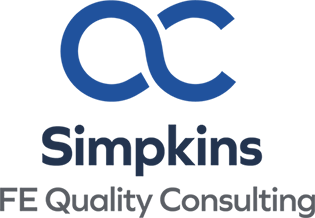
The Secret Ingredient to Student Success: Learner Engagement
As an experienced quality consultant in further education, I’m constantly considering what makes some academic programs truly shine while others flounder. What’s the secret ingredient that separates run-of-the-mill courses from those that profoundly impact students’ lives?
The answer, in my view, is learner engagement.
Whether they’re teenagers pursuing a vocational qualification or adults returning to learning, students who feel genuinely engaged in their education are far more likely to find it rewarding. They have higher completion rates, better academic results, and go on to reap substantial benefits in work and life.

So how can colleges and training providers cook up the recipe for learner engagement? Let’s explore some key strategies:
Make It Relevant
Adults learn best when education feels directly relevant to their goals and interests. Too often, course curriculums get bogged down in theory without clear connections to real-world application. Engaging content shows students explicitly how it applies to their aspirations. For example, healthcare students could analyse real patient case studies, while business students could analyse case studies and create plans for real, local small businesses they gain access to. Applied, practical learning sticks.
Ofsted praised Derwen College for its “highly effective work with employers to design and deliver a curriculum that prepares learners exceptionally well for future employment.”
Embrace Active Learning
Passive learning approaches like long lectures often fail to excite students. Implementing active learning strategies like discussions, hands-on labs, collaborative projects, field work and more gets students energised as active participants rather than just recipients of information. Let them demonstrate concepts through creation, problem-solving, debate and teamwork. Linking, sequencing, and effective ‘learn, do, review’ is a simple, yet extremely impactful way to learn.
Barnet and Southgate College was commended for its “extensive range of enrichment activities” including skills competitions, charity events, and work experience.
Leverage Technology
Today’s students are digital natives, so tap into edtech tools that provide personalised, self-paced learning options. Features like gamification, virtual simulations, and adaptive learning can all increase engagement. Online polls, discussion forums, and interactive tutorials allow for collaboration while building digital skills. But focus on using technology to enhance interaction rather than replace it. Collaboration between ‘cohorts’ can effectively be achieved remotely if you’re using the right tools.
Ofsted noted Nacro education programs make “very effective use of technology to motivate students.” Virtual campus, apps and digital portfolios were highlighted.

Build Community
Learning together builds community. Encourage peer networking through group assignments, tutoring programs, clubs, and informal social events. These opportunities for connection can deepen engagement and combat isolation. A strong sense of community enhances persistence and collaboration skills.
Kensington and Chelsea College fosters an “inclusive environment” with peer mentoring, social spaces, and collaboration across different courses.
Go the Extra Mile
Truly exemplary programs don’t just aim to check boxes for completion – they provide enriching opportunities that go above and beyond. Look for ways to inspire students’ curiosity and connect them to expanded learning options. Bring in dynamic guest speakers to share real world perspectives. Organise off-site visits to companies, conferences or exhibits that bring concepts to life. Offer extended workshops, bootcamps and events that let interested students dive deeper into topics. Provide resources and communities for self-guided learning beyond required coursework. Embrace an abundance mindset by creating possibilities for students to broaden their educational experiences as far as their motivation and imagination takes them. Going the extra mile demonstrates commitment to igniting students’ lifelong passion for learning.
Learning Curve Group offers industry ‘masterclasses’ including site visits, hands-on workshops, hackathons and external competitions.
Offer Flexibility
Diverse students have diverse needs. Offer flexible learning options like part-time schedules, modular courses, evening classes, blended formats, and open entry/exit times. Meeting learners where they are in terms of scheduling, delivery channels and life circumstances can help overcome barriers to engagement.
Derby College Group tailors study programs to meet individual learner needs including part-time, evening and blended options.

Focus on Wellbeing
Juggling education, work and life demands takes a toll. Make sure programs promote mental health, wellness, and life balance. Consider offering access to counselling services, stress relief workshops, mental health days, and wellness activities. Provide academic coaching, mental health support and stress management resources by having relevant expertise within your business to support students. Protecting students’ overall wellbeing helps them engage fully.
Ofsted recognised East Coast College’s “extensive range” of mental health services including counselling, therapy dogs, and wellbeing ambassadors.
Harness Data for Insights
To fully understand learner engagement, leverage your data. Track key metrics like attendance rates, assignment completion, grades, and satisfaction surveys over time. Analyse for patterns – when do drop-offs typically occur? Which courses have the highest attrition? Look at quality factors too – are low-rated instructors correlated with lower retention? Cross-reference engagement data with student demographics and learning formats. These insights allow you to pinpoint problematic areas and implement targeted solutions. For at-risk students starting to fall behind, have protocols in place for early intervention through academic advising and support systems. Used strategically, data can help you identify and resolve engagement barriers for continual improvement.
London South East College uses data tracking and intervention for at-risk students. Data insights also inform quality improvement plans.
Foster Success
When students feel supported in their academic journey, they engage more. Identify potential knowledge gaps early and provide access to tutoring and mentoring. Be transparent about expectations and progress. Celebrate incremental wins and milestones. Guide students toward success in and beyond the classroom.
By taking an intentional, multifaceted approach to engagement, colleges and training providers can significantly elevate the learner experience. Students will be more enthused, empowered, and eager to get the most from their education when they feel invested in the process. That engagement leads to achievement.

As an experienced quality consultant passionate about further education, I’m eager to collaborate with organisations to implement research-backed engagement strategies. Get in touch at www.simpkinsfequalityconsulting.co.uk or via email at [email protected] to start your journey. Together, we can create programs that truly change lives through the power of engaged learning.






